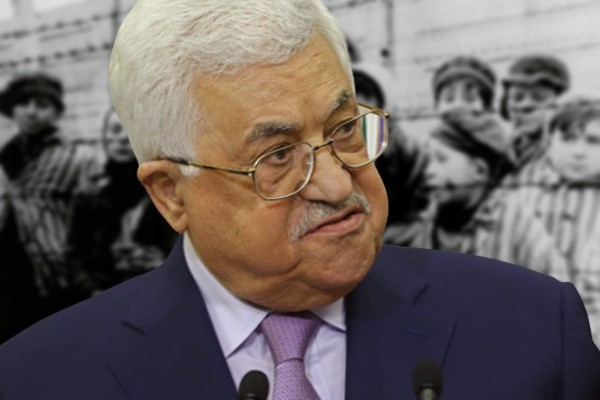Unable to simply unequivocally denounce Abbas’ repugnant speech, the 96 signatories also used the letter to attack so-called “Israeli settler colonialism” and to spread the well-worn apartheid libel.
By Rachel O’Donoghue, HonestReporting
The Guardian was the only international media outlet to cover the publication of an open letter that was recently signed by a number of “Palestinian intellectuals, artists and other public figures” in condemnation of the antisemitic remarks made by Palestinian Authority President Mahmoud Abbas at an August session of the Fatah Revolutionary Council.
However, unable to simply unequivocally denounce Abbas’ repugnant speech, the 96 signatories also used the letter to attack so-called “Israeli settler colonialism” and to spread the well-worn apartheid libel.
As reported by The Guardian’s Bethan McKernan, the signees include individuals such as “Rashid Khalidi, the historian, Dana el-Kurd, the political scientist, and Sam Bahour, the prominent businessman,” who all apparently “condemn the morally and politically reprehensible comments” made by the octogenarian leader.
Yet, as is par the course for the publication’s longtime Jerusalem correspondent, McKernan was selective about what information she included in the piece.
A quick examination of the missive reveals the signatories comprise a who’s who of Palestinian antisemites, including writer Refaat Alareer, who has repeatedly compared Israel to Nazi Germany and once posted online that Zionism and Nazism “are two cheeks of the same dirty arse,” Democrat Congresswoman Rashida Tlaib, whose hatred of the Jewish state has frequently crossed the line into antisemitism, and Ubai Aboudi, a convicted member of the PFLP terrorist organization.
On further researching the backgrounds of some of the other individuals who signed the letter, we were disappointed to discover that someone who works for a highly influential international media outlet and frequently reports on Israel and the Palestinian territories was apparently a signatory.
After looking into the circumstances of how the journalist ended up being associated with this letter, we found out that their name had been added allegedly without their knowledge. The journalist, who we are not identifying, later contacted the letter organizers and had their name removed.
It is not wholly clear why this person was erroneously included among the letter’s signatories, but the fact that at least one signature has been called into question and erased raises further questions surrounding the credibility of the entire letter.
Were any of the other 96 names added without their knowledge and in the hope they wouldn’t notice or care?
And will The Guardian ever do any due diligence before republishing this letter or any other like it?
